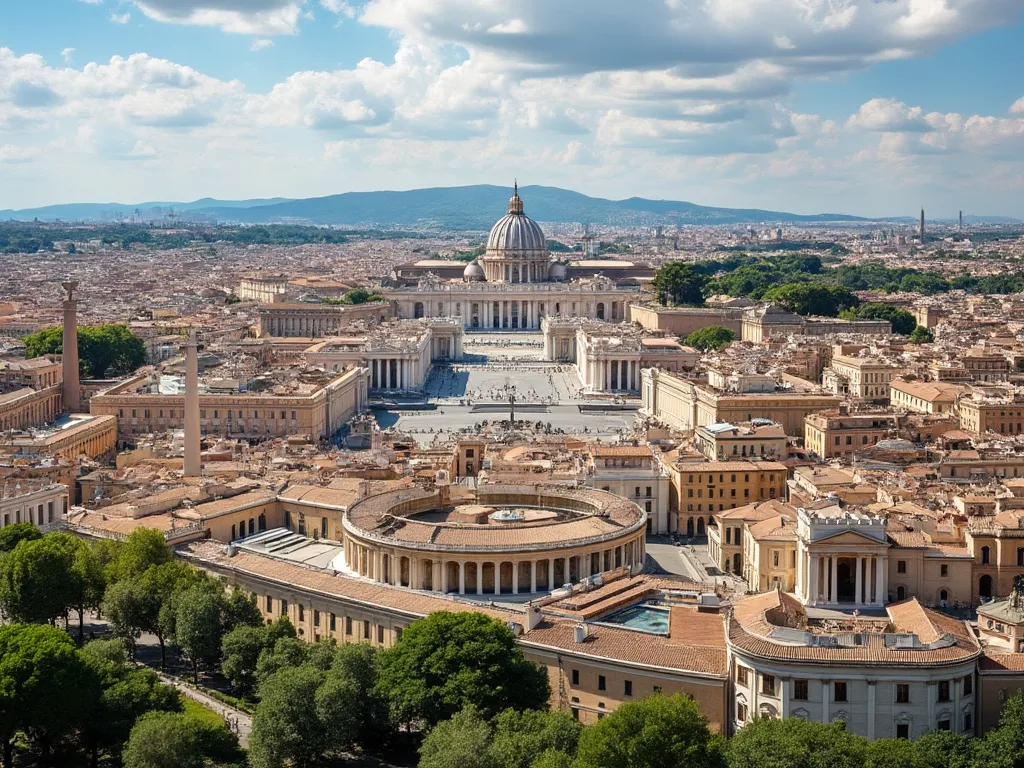
Vatican City is the smallest internationally recognized sovereign state in the world, both by area and population. It is an independent city-state located within Rome, Italy, and is home to the Pope and the central government of the Catholic Church.
Vatican City information
| Country | 🇻🇦 Holy See |
| Population | 825 (as of 2020) |
| Coordinates | 41.9064° N, 12.4534° E |
| Area | 0.44 km² (0.17 sq mi) |
| Climate | Mediterranean climate |
| Language | Italian, Latin, French, German |
| Currency | Euro (€) |
| Time zone | Central European Time (CET) |
| Proximity to other major cities | Rome, Italy (within Rome's city limits) |
Interesting facts about Vatican City
- Vatican City is the smallest country in the world, both by area and population.
- The city has its own postal system, currency, and telephone network.
- Vatican City is home to the world's oldest and largest library, the Vatican Library.
- The city has a unique flag, featuring the keys of Saint Peter.
Tourist attractions in Vatican City
- St. Peter's Basilica
- The Sistine Chapel
- The Vatican Museums
- The Vatican Library
- The Pontifical Villas
Historical background of Vatican City
Vatican City has a rich history dating back to the 4th century when the Roman Empire was at its peak. The Vatican Hill, where the city is located, was the site of the tomb of Saint Peter, one of Jesus' twelve apostles. In the 14th century, the Pope moved his residence from Rome to Avignon, France, but returned to Rome in the 14th century. The Vatican City as we know it today was established in 1929, when the Lateran Treaty was signed between the Holy See and the Kingdom of Italy, recognizing the sovereignty of the Holy See over the city.
Geographical location of Vatican City
Vatican City is located within Rome, Italy, and is surrounded by a wall. It is the smallest country in the world, both by area and population, and is home to numerous iconic landmarks, including St. Peter's Basilica, the Sistine Chapel, and the Vatican Museums.
Cultural significance of Vatican City
Vatican City is a cultural and spiritual hub, attracting millions of visitors each year. The city is home to numerous iconic landmarks, including St. Peter's Basilica, the largest Christian church in the world, and the Sistine Chapel, famous for Michelangelo's frescoes. The Vatican Museums house some of the world's most famous art collections, including works by Michelangelo, Raphael, and Caravaggio.
Economic importance of Vatican City
Vatican City has a unique economy, supported mainly by the sale of postage stamps, coins, and souvenirs, as well as investments and donations. The city is also home to numerous financial institutions, including the Vatican Bank, which provides financial services to the Catholic Church.
Conclusion on Vatican City
Vatican City is a unique and fascinating destination, rich in history, culture, and spirituality. As the smallest country in the world, it is a must-visit destination for anyone interested in exploring the heart of the Catholic Church.
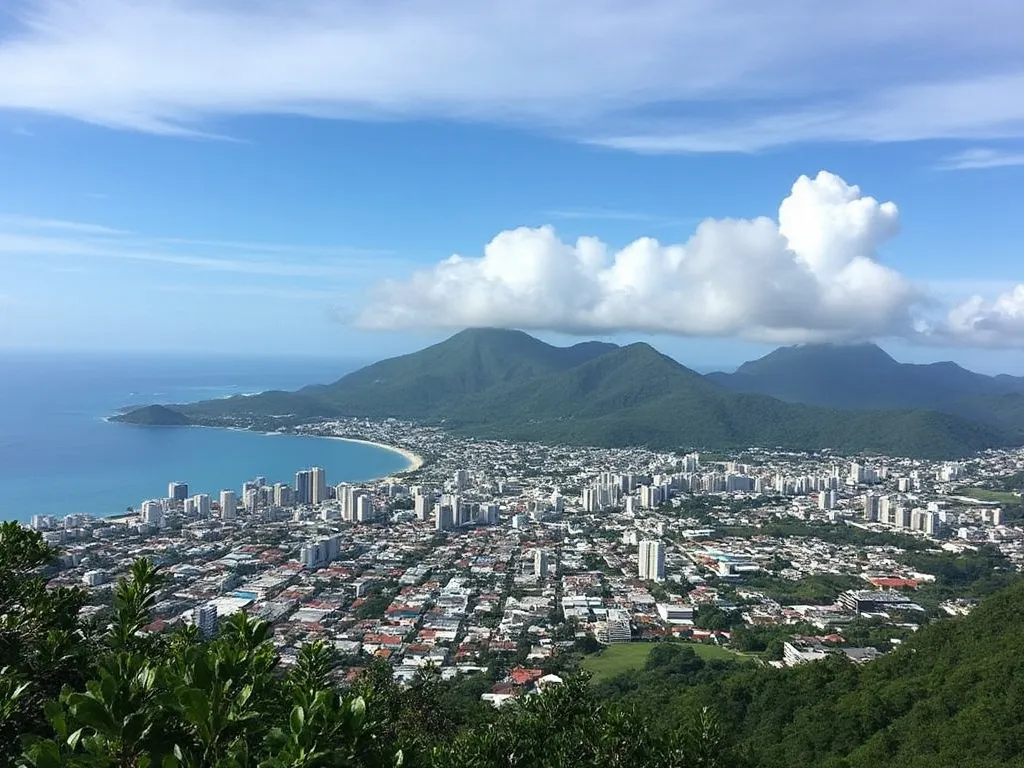 Victoria
Victoria
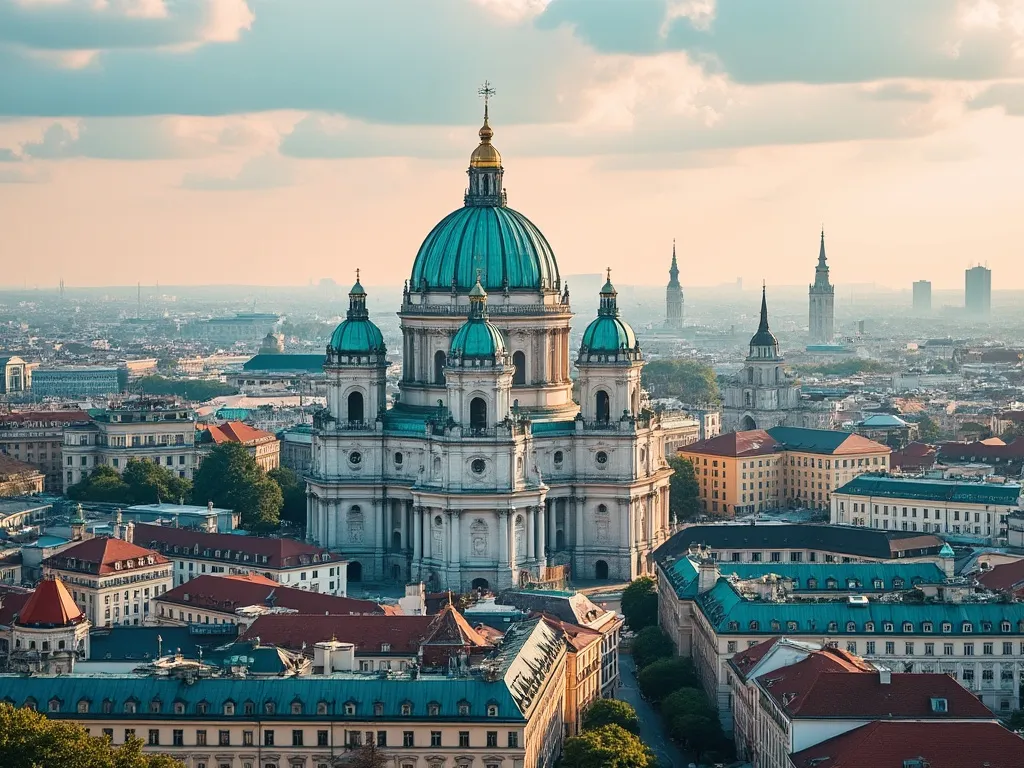 Vienna
Vienna
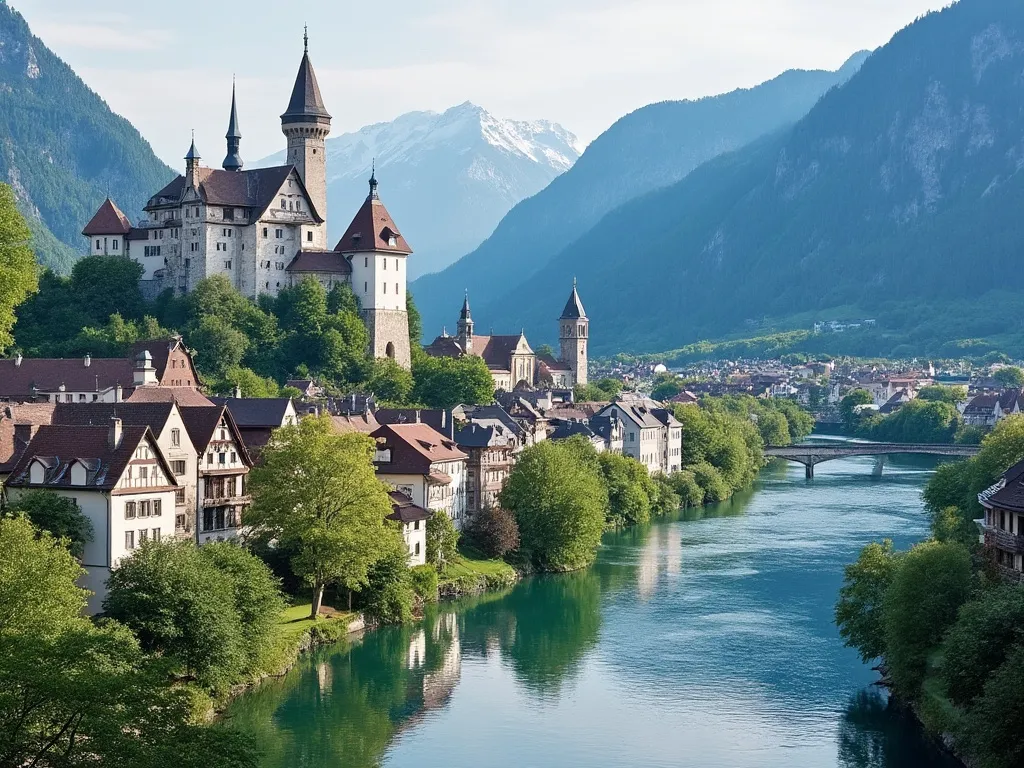 Vaduz
Vaduz
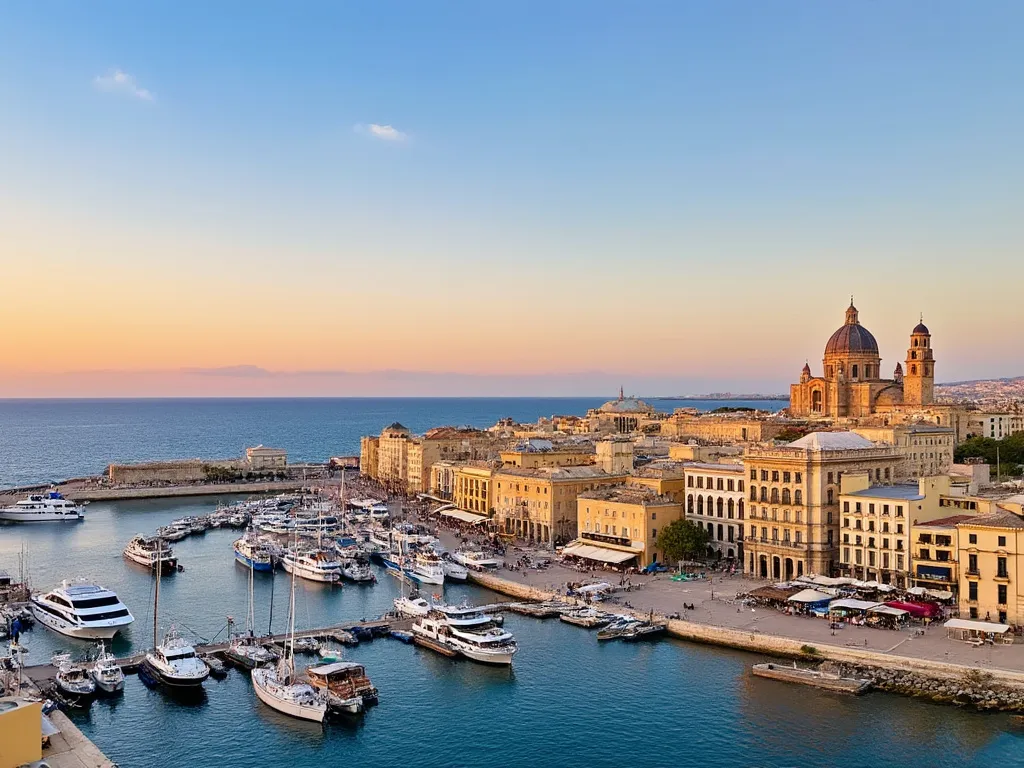 Valletta
Valletta